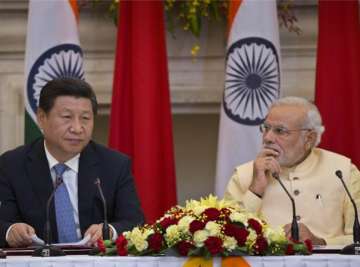India should avoid ‘unnecessary entanglement’ in South China Sea, must focus on trade ties: Chinese media
India should avoid “unnecessary entanglement” in the South China Sea dispute during Chinese Foreign Minister Wang Yi’s visit to New Delhi and should instead focus on trade ties between the two countries, a state-run Chinese

India should avoid “unnecessary entanglement” in the South China Sea dispute during Chinese Foreign Minister Wang Yi’s visit to New Delhi and instead focus on trade ties between the two countries, a state-run Chinese daily opined on Tuesday.
“India may want to avoid unnecessary entanglement with China over the South China Sea debate during Wang’s visit if the country wishes to create a good atmosphere for economic cooperation, which would include reducing tariffs on made-in-India products exported to China amid the ongoing free trade talk known as the Regional Comprehensive Economic Partnership,” an article in the state-run Global Times said.
“India is expected to allow only moderate tariff reduction on made-in-China products under the talks in a bid to preserve its domestic industries. If India wants China to be more generous in terms of tariff reduction, it would be unwise for the country to let its relationship with China deteriorate further at this moment,” it said.
The daily said India’s focus was more on the South China Sea issue while giving less attention to the recent fall in exports of made-in-India products to China.
“India's exports to China have dropped 16.7 percent year-on-year in the first seven months of the year, Chinese customs data showed Monday, suggesting that a large number of Indian enterprises are having a hard time exploring the Chinese market amid simmering tensions between the two countries,” it said.
“It is puzzling that India is focusing on the South China Sea issue at this moment, a move that might risk unnecessary side effects to Sino-Indian ties and potentially set up obstacles for Indian exporters hoping to increase their presence in China, now the world's second largest importer,” the daily said.
Underlining that tensions between China and India have been increasing in recent months owing to a series of political incidents, it said, “Considering that India does not face territorial disputes with China in the South China Sea, is it worth letting the South China Sea issue become another factor that will impact India’s cooperation with China? India should consider this.”
“India should move its focus from geopolitical competition to economic issues, such as how to stop a further decline in exports to China. Under normal circumstances, defusing the tensions between the two counties will help lay a sound foundation for fostering closer economic ties. In this regard, Wang Yi's trip will offer concrete opportunities for India,” the editorial published in the daily said.
Wang will arrive in India to hold talks with his counterpart Sushma Swaraj on August 13 during which key regional and bilateral issues will be discussed, including India’s bid for membership in the Nuclear Suppliers Group.
His visit comes ahead of the G20 Summit to be held in the Chinese city of Hangzhou next month in which Prime Minister Narendra Modi is expected to take part.
Following the ruling by an international tribunal last month which rejected Beijing’s claims over much of the disputed sea area, China is campaigning against the issue to be raised in G20 Summit, saying it is a matter to be resolved between parties concerned and outsiders have no role.
“In fairness, after dozens of countries have expressed support for China’s stance in the South China Sea, India’s attitude toward the issue may not be as important as the nation had imagined,” the article said.
“While many Indian people have been focused on the South China Sea ahead of Chinese Foreign Minister Wang Yi’s upcoming trip to the country, less attention has been paid to the recent fall in exports of made-in-India products to China,” it said.
In the end the articles suggested that India should move its focus from geopolitical competition to economic issues to stop a further decline in exports to China.